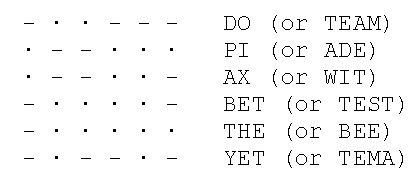A self-inventorying Spanish sentence, discovered/invented by Miguel Lerma of the Universidad Politecnica of Madrid:
Esta frase contiene exactamente doscientas treinta y cinco letras: veinte a’s, una b, dieciseis c’s, trece d’s, treinta e’s, dos f’s, una g, una h, diecinueve i’s, una j, una k, dos l’s, dos m’s, veintidos n’s, catorce o’s, una p, una q, diez r’s, treinta y tres s’s, diecinueve t’s, doce u’s, cinco v’s, una w, dos x’s, cuatro y’s, y dos z’s.
See also The Quick Brown Fox, Bills of Lading, and Inventory.



